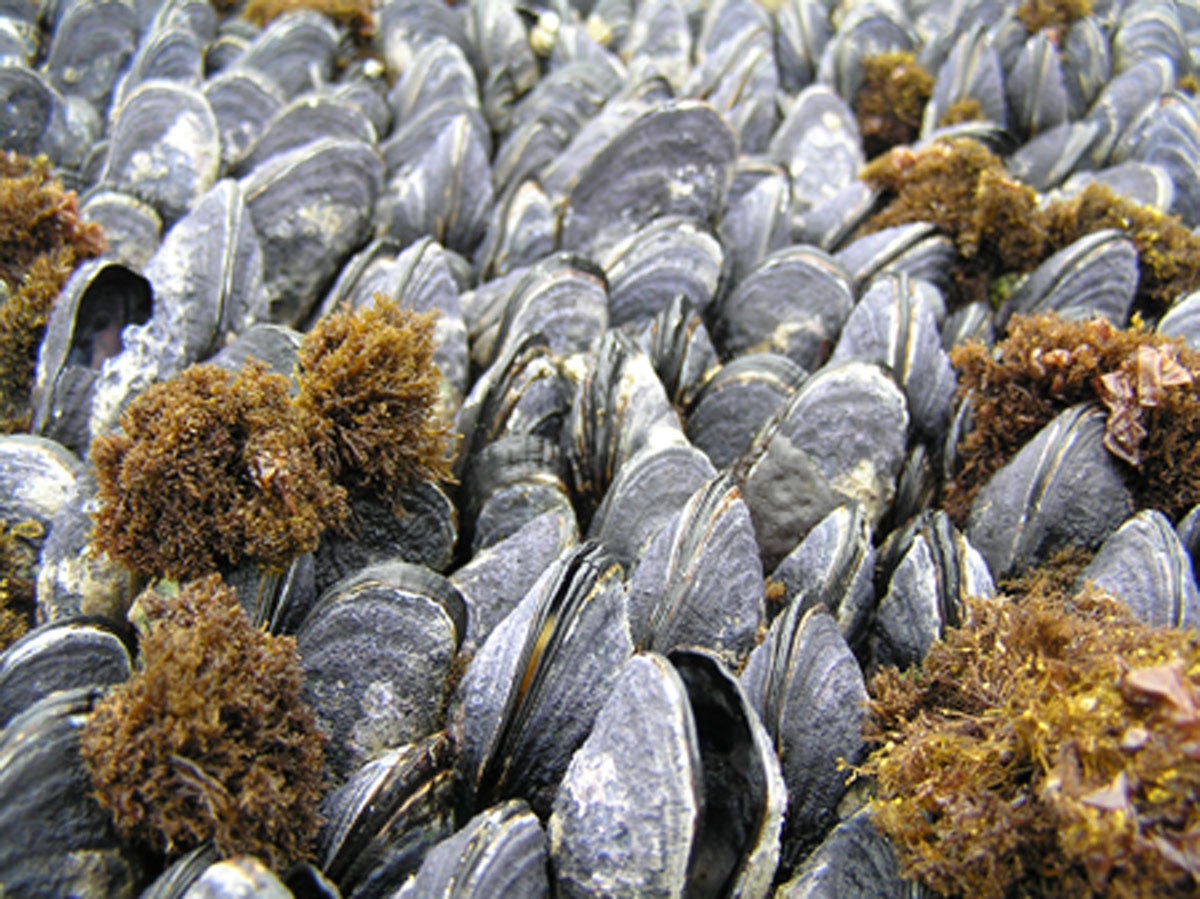More than a billion seashore animals may have been cooked to death in Canada heatwave
Millions of clams, mussels, sea stars and other creatures are thought to have been killed amid soaring temperatures in Canada

More than a billion seashore animals may have been cooked to death during Canada’s deadly heatwave, a marine biologist has said.
Christopher Harley, professor of zoology at the University of British Columbia, discovered thousands of dead mussels, clams, sea stars and snails along the Salish Sea coastline and calculated that there are likely millions more across the country.
Temperatures in western Canada soared to record highs in late June and early July, sparking wildfires and killing hundreds of people, primarily in British Columbia.
Harley’s team recorded temperatures above 50C at certain points amid the animals’ habitats along the coast using infrared cameras, which proved disastrous for the creatures.
The team, made up of student researchers, canvassed multiple coastlines including those in West Vancouver and on the Sunshine Coast, helping Harley to calculate the scale of the wipe out.
Multiplying the number of dead animals found in the canvassed areas by the total habitat size in the Salish Sea, he found that millions of animals had likely been cooked to death.
“You can fit about 2,000 mussels in an area the size of your stovetop,” he told CBC News.
“Imagine how many stovetops you could fit into Stanley Park, and then how many Stanley Parks fit into the Salish Sea.
“So if you’re losing a few hundred or a few thousand mussels for every major shoreline, that quickly scales up to a very, very large number.”
Harley first realised that the heatwave had killed so many intertidal animals – creatures that live where the land meets the sea – when visiting Kitsilano Beach in Vancouver.
He was “stunned” by the stench of the tens of thousands of dead animals carpeting the beach, he said.
Such animals can ordinarily stand temperatures of almost 40C for short periods of time, but the scorching heat combined with low tides proved deadly.
“A mussel on the shore in some ways is like a toddler left in a car on a hot day,” Harley told CBC.
“They are stuck there until the parent comes back, or in this case, the tide comes back in and there’s very little they can do. They’re at the mercy of the environment.
“And on Saturday, Sunday, Monday, during the heat wave, it just got so hot that the mussels, there was nothing they could do.”
The implications of the wipe out go beyond loss of life. Mussels and clams help to filter the sea, meaning that their deaths will likely affect its water quality, Harley explained, and these populations aren’t likely to recover for a year or two.
He also believes that many more animals have perished across Canada: he plans to visit the Gulf Islands and Vancover Island to undertake more research, with the aim of publishing a paper on the subject as early as next year.
The populations’ recovery could prove difficult if climate change sparks further heat waves in the area.
“Eventually, we just won’t be able to sustain these populations of filter feeders on the shoreline to be anywhere near the extent that we’re used to,” he said.
“If we don’t like it, then we need to work harder to reduce emissions and take other measures to reduce the effects of climate change.”
Join our commenting forum
Join thought-provoking conversations, follow other Independent readers and see their replies
Comments
Bookmark popover
Removed from bookmarks